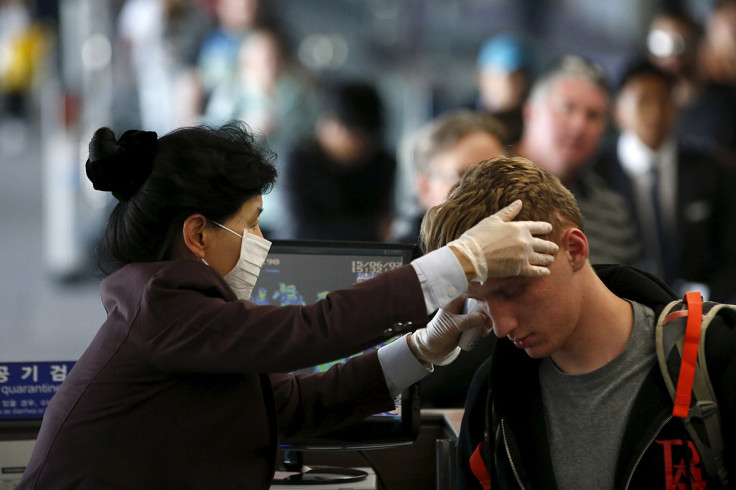MERS: UK won't issue South Korea travel advisory after Hong Kong issues virus "red alert"

Britain's Foreign Office said it will monitor the situation in South Korea, where eight new cases of the deadly Middle East Respiratory Syndrome (MERS) have been reported, before considering changing its travel advisory to the Asian country.
Southeast Asian neighbour Hong Kong, a former British colony until 1997, issued a red alert advisory on Tuesday warning travellers to avoid trips there due to the contagious respiratory virus.
"Hong Kong probably have more concern," said a UK Foreign Office spokesperson, citing the higher number of travellers from the Chinese island to South Korea. "We don't issue red alerts. If it were to escalate, I imagine we would issue something," the office added.
Eight new cases of Middle East Respiratory Syndrome (MERS) have been reported in South Korea, bringing the number of cases to 95. So far seven people have died of the illness there.
For the moment, the UK Foreign & Commonwealth Office's website carries an advisory updated 9 June regarding travel to South Korea. It warns visitors that officials from the Republic of Korea will screen them when they enter and leave the country and that anyone who displays symptoms of MERS "will be subject to quarantine".
Around 100,000 British nationals visit South Korea every year.
The outbreak of the virus in South Korea is the largest outside of the Middle East. MERS is a respiratory illness that has only recently infected humans. It first came to light in Saudi Arabia in 2012 and cases have spread to 25 other countries — including the US. Symptoms include a severe fever, cough, and shortness of breath.
The virus is a mutant spawned from a large family including illnesses such as the common cold and Severe Acute Respiratory Syndrome (SARS).
Globally the World Health Organization has recorded 431 deaths related to the virus. Approximately 36% of people who have contracted MERS have died. To date, 25 countries have reported cases, including: Egypt, Iran, Jordan, Germany, Italy, the Netherlands, Turkey and the United Kingdom.
Hong Kong warned visitors to Korea and the Middle East to avoid unnecessary visits to hospitals and advised people to stay away from "farms, barns or markets with camels" and to avoid contact with animals such as camels, chickens, and other birds.
The US Centers for Disease Control and Prevention website carries a statement telling Americans not to change their travel plans to the Republic of Korea or other countries where the virus has appeared.
© Copyright IBTimes 2024. All rights reserved.






